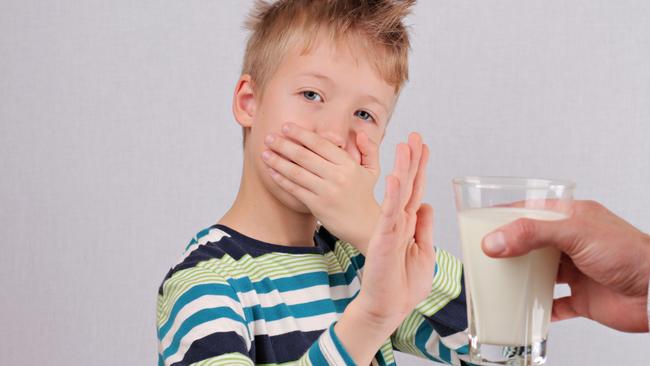Australian scientists use placenta to predict whether a newborn will develop an allergy
IT’S the organ that sustains a baby for 40 weeks, but scientists say the placenta could also contain secrets about a child’s risk of developing allergies.
VIC News
Don't miss out on the headlines from VIC News. Followed categories will be added to My News.
AUSTRALIAN scientists may have found a way to predict whether a newborn is at risk of developing an allergy.
And it could be as simple as taking a tiny sample from the baby’s placenta, the organ that provides a baby with all the oxygen and nutrients it needs before it is born.
Knowing a child has a high risk of developing an allergy could help pave the way for interventions to reduce the severity of the allergy, or even prevent it.
ANXIETY CHANGES PLACENTA GENE EXPRESSION
STUDY SUGGESTS ROLE OF ETHNICITY IN GESTATION
PREGNANT WOMEN DIVIDED OVER PRENATAL TESTING
Professor Vicki Clifton, from the Mater Medical Research Institute at the University of Queensland, said the placenta was usually discarded after birth.
But her team had found it could provide genetic clues about whether the baby was at risk of developing an allergy in the first few years of life.

“Allergies are the first chronic disease that children develop in life and its incidence is increasing in Australia,” Prof Clifton said. “Often, we cannot diagnose allergies without the children having an allergic response and by then the horse has bolted.”
Currently, there are recommendations made around breastfeeding and the introduction of solids to reduce the risk of food allergies in children with a family history of allergic disease.
However, Prof Clifton said many trials of other interventions had failed or their significance diluted because they had been performed in children who might not be at risk.
“But if we can take the placenta at birth and identify the children at a high risk of allergy and then try an intervention, we may be able to find ways to reduce the impact of an allergy or prevent the baby from going on to develop a significant one,” she said.
Their research looked at the proteins and genes in donated human placentas from South Australia as a marker of which children would go on to develop an allergy. They now plan to confirm these results in a sample group from Victoria.
COULD THIS BE THE SECRET TO PREVENTING FOOD ALLERGIES?
CAN EATING PLACENTA HELP BEAT BABY BLUES?
“A lot of people want to know if their child is at risk of developing an allergy and whether they can do something before they get it,” Prof Clifton said. “We think it may be possible because it looks like the placenta can predict who is going to be susceptible.”
She said the advantage of using the placenta was that it spared the baby from having a blood test and only required taking a small section of the organ.
Prof Clifton presented her work at the Developmental Origins of Health and Disease Society of Australia and New Zealand conference in Sydney.


